August 30, 2024: Sharda School of Engineering and Technology is proud to announce the remarkable achievement of Team SAMARTH, students who have secured 3rd place in the prestigious ISRO Robotics Challenge, held at the ISRO Centre, Bangalore. On the occasion of National Space Day, the Honorable President of India, Droupadi Murmu, awarded the students' team with a cash prize of INR 2 lakh in recognition of their achievement.
Prof. (Dr.) Parma Nand, Pro Vice Chancellor, Sharda University said “Team SAMARTH, representing Sharda University, showcased exceptional skill and ingenuity with their rover design, which impressed the panel of experts and distinguished them among the top teams in the country. The University earned the 3rd rank as a testament to their hard work and dedication. This success provides inspiration to the entire Sharda University community and showcases the ongoing efforts of the university in providing its students with opportunities to excel in their chosen fields. This significant achievement highlights the university's commitment to fostering innovation and excellence in engineering and technology. This award not only brings pride to the university but also strengthens Sharda University's position as a leading institution in promoting cutting-edge research and technological innovation.
Kartik Pandey, Muskan, and Viraj, first-year B.Tech students from Sharda University, under the mentorship of Jitendra Kumar, designed and developed a robotics rover with innovative ideas and design. They named their team "SAMARTH" for the Robotics Challenge. The competition saw the participation of over 1,800 teams from across the country, but only 143 teams were selected for the first round based on their proposed reports. The challenge, which invited participation from institutions and universities across India, saw an overwhelming response, with 281 teams being shortlisted in the first round. Ultimately, only 10 teams made it to the final stage of the competition.
Sharda World School launches two international courses to empower students at a global level
August 13, 2024: Sharda World School has launched two international courses to empower students at a global level. These courses combines the Finland Education System (FINE) and the Cambridge Board syllabus. Further, these courses are offered to students from grades one to eight and has a comprehensive education curricula. Sharda World School, located in Agra is a constituent unit of the Sharda Group and is the only school in North India where students are taught using the curricula of the Cambridge and Finland education systems alongside the CBSE curriculum.
The integration of these global curricula provides a broad and enriching educational experience to students. P.K. Gupta, Chairman of the Sharda Group, explained that the inclusion of internationally recognised Finnish and Cambridge education systems will give students an exceptional learning foundation. This initiative aligns with the Prime Minister's vision for innovative educational approaches. The goal is to ensure that Indian youth face no barriers when seeking employment or higher education abroad. The focus is on developing students and preparing them for leadership roles in the global community, while also fostering an entrepreneurial mindset and uncovering each child's innate talents.
Prashant Gupta, CEO of Sharda World School, added that the school's early education system emphasises play and enjoyment, making learning a positive experience for children. By combining three different curricula, the school aims to support the overall development of students and contribute to India's growth as a developed nation. In addition to the international curricula, the school offers boarding facilities for both boys and girls. The objective is to nurture an entrepreneurial mindset and reveal each child's natural abilities and talents from an early age.
Sharda University Conducts Tree Plantation Drive, Plants 500 Saplings
July 26, 2024: Sharda University's Estate Department and various faculties, in collaboration with Info Edge India, organised a tree plantation drive. During this event, 500 saplings of various plants were planted. These included Neem, Peepal, Pilkhan, Mango, Chiku, Pomegranate, Jamun, Banyan, and Gulmohar. Faculty members and international students participated in the event, inspiring and raising awareness among the local community about the multiple benefits of planting trees.
P.K. Gupta, Chancellor, Sharda University emphasized “the importance of trees in reducing pollution and providing essential oxygen. He highlighted that the decrease in the number of trees on Earth is leading to an increase in toxic air, causing various diseases. Trees not only provide oxygen but also offer fruits, shade, and valuable timber. He stated that tree plantation can help mitigate global warming. Gupta also stressed the need for regular care of the planted trees, as many plants perish without proper nurturing. Awareness about tree plantation has been spread for years, and now the focus should also be on their maintenance”.
Dr. R. C. Singh, Dean Academic Affairs, Sharda University “drew an analogy, stating that just as the body requires food for nutrition, the environment needs trees to remain pure. Trees absorb environmental impurities and provide us with pure, life-sustaining air. To maintain this continuity, more trees should be planted. Dr. Singh mentioned that it is a moral responsibility of every individual to protect the environment. He urged everyone to come forward, plant trees, and inspire others to do the same. For environmental conservation, everyone should plant at least one tree in their lifetime”.
The event was attended by Y.K. Gupta Pro-Chancellor, Sharda University; Vivek Gupta Registrar, Sharda University, and Dr. Ritu Sood, Dr. Ajit Kumar, R.D. Sahe, Dr. Pramod Kumar, Dr. Kapil Dave, ADC Ashok Kumar along with various department heads and deans.
July 25, 2024: The common highlights of the budget discussion are:
Dr Hari Shankar Shyam, Professor and Chairperson Placements, Sharda School of Business Studies, Sharda University-
"One of the finest budget to enhance the inclusivity for female participation in Indian economy. Govt. wants to skill them through partnerships and by setting hostels. It will prove to be a game changer to reduce the income gaps among the gender. There is a very encouraging support for job creation among manufacturing industries and there is a big support for employers. I rate 8.5 out of 10 to this budget."
- The government will offer financial assistance of loans up to Rs 10 lakh for higher education in domestic institutions.
- The government will launch a scheme that will provide internship opportunities in 500 top companies to one crore youth in the next five years.
Dr Anupam Anand , Department of General Medicine, Sharda Hospital-
"Budget Allocation: The Union Health Ministry has been allocated Rs 90,658.63 crore in the interim Budget for 2024-2025, a 12.59% increase from the previous year.The govt seems to be committed for allocation of budget to improve the quality of healthcare. Rural India specially needs this boost. Various schemes for maternal and child healthcare will be brought under one comprehensive program for synergy in implementation."
Prof. (Dr.) Kapil Pandla, Dean, Sharda School of Business Studies-
"The Finance Minister's recent budgetary announcements reflect a strong commitment to addressing key issues in education, employment, and skill development, particularly with a focus on increasing women's workforce participation. as announced by her, setting up hostels and creating partnerships for women-specific skilling programs is a significant step towards empowering women."
Dr Parul Saxena from Sharda University-
"The Union Budget 2024–25, which Finance Minister Nirmala Sitharaman delivered, has my utmost approval. This budget is a critical step in the direction of achieving the goals of "Viksit Bharat," since it gives the education sector—a vital component of national development—a great deal of attention. The government's choice to devote a larger portion of GDP on education is indicative of its steadfast dedication to developing India's pool of talent and intelligence."
Graduation ceremony 2023- 2024 for Sharda University's Overseas Students
July 18, 2024: Sharda University held a graduation ceremony for its Class of 2023-24. During the programme, 400 graduating students from 26 nations received their certificates.
Y.K. Gupta, Pro-Chancellor, Sharda University stated “that when students study abroad, they face numerous challenges and learn about the language, culture, and customs of the host country but it is the role of university to take the international students along and help them grow. He expressed pride in the fact that students from 95 countries are associated with the university and extended his best wishes for their bright future. He hoped that after completing their studies, these students would bring honor to their country, institution, and family.
Dr. Ajit Kumar, Director, Sharda University, addressed the students, emphasizing the significance of the day. He mentioned that every student has a goal in life, and today marks the beginning of their journey towards achieving it. Sharda University has established a dedicated department for international students, providing a family-like atmosphere and language experts from various countries to assist with communication and celebrate festivals together.
During the event, several esteemed individuals were in attendance, including Dr. Ashok Dayrani, Director - International Relations, Sharda University; Dr. Parmanand, Pro Vice-Chancellor, Sharda University; Dr. Kapil Pandla, Dr. R.B. Sahi, Dr. Anviti Gupta, and other university officials.
Sharda Celebrates International Yoga Day with Enthusiasm and Unity
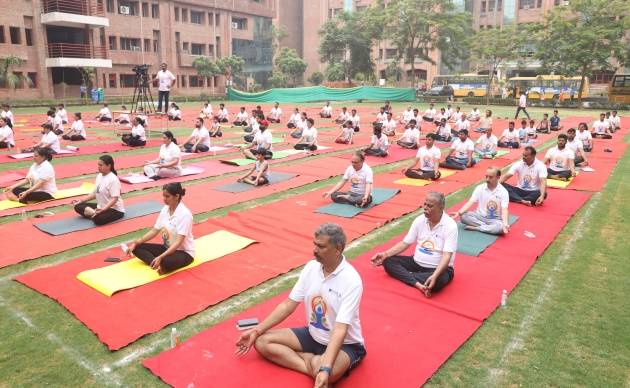

February 19, 2024: An HR Conclave 2024 was arranged by the Sharda School of Business Studies (SSBS) in association with the Training & Placement Department. The conclave's theme was "The Future of Work - Adapting to Changing Landscapes," and speakers included well-known figures in the field. Speakers who inspired the Sharda University students were Sahil Nayar, Senior Director at KPMG; Raosaheb Kangane, Senior Vice President at Kotak Mahindra Bank; Kruti Pancholi, Senior Director (HR) at Cipla; Chandrima De, Head of HR at VLCC; and numerous others.
"Advanced technologies like artificial intelligence (AI), machine learning, and robotics are reshaping job roles, emphasising skills that complement automation," stated Chandan Kashikar, CPO of Jagjit Industries, expressing his opinions. The epidemic has spurred a reconsideration of the office-centric strategy by hastening the introduction of remote and hybrid work methods. Amidst these shifts, promoting inclusive environments and placing a high priority on employee well-being are more important.
Participants in the programme were Sharda University officials, faculty, and students.
Post-Budget Reaction from Education & Health Industry
February 5, 2024:
Vivek Kumar Gupta,Registrar, Sharda University
The government has prioritized the education sector, aiming to establish over 300 universities. Additionally, a committee has been formed to create new medical colleges to meet the demand for medical education, and efforts are underway to enhance health services. The goal includes providing 2 crore new houses for the underprivileged in rural areas and supplying free solar electricity (up to 300 units) to 1 crore households.
Col. Gaurav Dimri, HR Director, Sharda University
Budget 2024 places a significant emphasis on the education sector, aligning with the goals outlined in the National Education Policy (NEP) 2020. The focus is on digitalizing education, incorporating technologies like AI and machine learning, promoting STEM research, and fostering collaboration between academic institutions and industry for research and entrepreneurship. Recognizing the youth as a crucial pillar of development, the government has allocated resources in the interim budget to address their aspirations and promote empowerment and upskilling:
-
The establishment of medical colleges using existing infrastructure is a commendable step towards expanding the scope of medical education and research, benefiting the healthcare sector.
-
The creation of a Rs 1 lakh crore corpus dedicated to integrating youth with research and technological development is a significant move. This corpus provides long-term financing for R&D projects and entrepreneurial ventures, offering low or nil interest rates, thereby encouraging and scaling up research initiatives.
-
The support for defense sector-related R&D and projects is also a positive measure, contributing to the advancement of technology and innovation in the defense domain.
CA Gopal Gupta, Joint Registrar -Finance and Accounts, Sharda University
The Finance Minister presented the interim Budget today, which left the salaried class disappointed due to the absence of changes in tax slabs. Many were anticipating increased deductions or alterations in tax slabs, but there were no adjustments in duties either. The government refrained from making major announcements.
On a positive note, there is a notable emphasis on the education sector, with the government setting a goal to establish over 300 universities. Additionally, a committee has been formed to create new medical colleges to address the needs of medical students and enhance healthcare services. The government has also set ambitious targets, aiming to provide 2 crore new houses to the poor in rural areas and offering free solar electricity (up to 300 units) to 1 crore households.
Dr. Bhupendra Kumar Gautam, Associate Professor,Sharda University
Today, Finance Minister Nirmala Sitharaman presented the Union Budget (Interim Budget) for the fiscal year 2024-2025, primarily centered around achieving long-term economic growth. The government aims to reduce the fiscal deficit to 5.1 percent by the financial year 2025. Key highlights include plans to establish more medical colleges, providing free electricity (up to 300 units per month) to one crore households through rooftop solarization, offering long-term interest-free loans to states to boost tourism, and addressing housing needs for the middle class. Additionally, there is tax relief for startups until March 31, 2025.
However, the salaried class expressed disappointment with the budget, expecting an increase in income tax slabs and the limit for Tax saving schemes under section 80C to be raised to at least Rs. 250,000. Similarly, they hoped for an increase in the NPS limit to Rs. 100,000. Unfortunately, there were no changes in income tax slabs, and the limits under sections 80C and 80CCD(1B) remained unchanged. Overall, the budget places a significant focus on fostering long-term economic growth.
Avinash Kr Sinha Management Professor,Sharda University
The government's emphasis on solar rooftops is a positive step towards addressing future energy needs. The vision for a developed India, Vikshit Bharat, by 2047, will strengthen financial infrastructure through the integration of digital technology and applications. The addition of 390 universities for skill development aims to make at least 2 million youth employable, fostering a skilled workforce for the nation.
Dr. Preeti Sharma, Associate Professor, Sharda School of Business Studies, Sharda University
The allocation of a Rs 1 lakh crore fund in Budget 2024 by Finance Minister Nirmala Sitharaman is a promising development for the youth. The creation of this fund, supported by a 50-year interest-free loan, represents a significant boost for long-term financing and re-financing initiatives, especially with the provision of low or no interest rates. This financial injection is anticipated to stimulate entrepreneurship and innovation among the youth, contributing to economic growth and job creation. This initiative aligns with the government's vision of a 'Golden Era,' demonstrating a strategic commitment to empowering the younger generation and steering the economy towards sustained prosperity.
Dr. Hari Shankar Shyam, Chairperson-Executive Education at Sharda School of Business Studies Sharda University
I'm thrilled to witness the significant allocation of funds for offering 50-year interest-free loans to tech-savvy youths. This initiative holds the potential to fuel our economy, paving the way for the emergence of numerous unicorns and encouraging a wave of entrepreneurial spirit among the youth. The allocation will not only contribute to the development of indigenous technical products but also propel our economy towards the trillion-dollar mark. With a boost in IT-related exports, there's a promising prospect of reducing our fiscal deficit and minimizing dependency on imports. This fund stands as a boon for incubators supporting startups nationwide.
Dr. Kulneet Suri Senior Director, IMS Noida, Adjunct Professor-Harvard University(T.H.Chan School of Public Healthcare) Harvard University, HKS Alumna
While serving as a temporary bridge until the formation of a new government post-elections, the budget has unveiled several notable initiatives to stimulate economic growth and enhance social welfare. Although the interim budget covers areas like Technology & Innovation, Women's empowerment, and healthcare, the emphasis should be directed towards embracing AI. Looking forward to AI trends in 2024, this year marks the transition of AI from testing to macro-implementation, particularly in industries like retail. Microsoft's introduction of the "AI Copilot key" for laptops indicates a strong likelihood of AI becoming more mainstream in the consumer landscape in 2024. Consequently, India should proactively prepare by making intentional investments in teaching new skills, fostering collaborative development and deployment of AI. Promoting online learning is crucial to reach the youth in Tier 2-3 cities, shaping an inclusive learning future and facilitating a learn-and-work ecosystem. Implementing positive policies for the higher education sector will further contribute to fostering academic growth and ensuring equitable economic advancement.
Dr VK Gautam, HOD , Orthopedics Department, Sharda Hospital.
The government ought to allocate funds for health insurance specifically catering to lower-class patients seeking medical care. Ayushman cards, designed for those who may not require them, should be readily accessible in all hospitals. This would streamline the process, ensuring that economically disadvantaged patients can easily obtain Ayushman cards and receive cost-free treatment.
Dr Bhumesh Tyagi, General Physician, Sharda Hospital
The Finance Minister's proposal to boost the number of medical colleges in the country, as outlined in the interim budget, is poised to simplify access to medical education. Additionally, there is a focus on advancing maternal and child health, which holds the potential to decrease infant mortality rates and enhance maternal well-being. The Ayushman Bharat scheme will now extend its coverage to include all Asha workers, Anganwadi workers, and helpers, ensuring that individuals from lower socioeconomic backgrounds can easily access healthcare services.
Dr. Shrey Srivastav, general physician, Sharda Hospital
The government's budget for FY2023-24 showcases highly commendable initiatives in the realm of women's health, maternal and child health, vaccinations, and the expansion of the Ayushman Bharat scheme to encompass all ASHA Workers, Anganwadi workers, and helpers. The introduction of new schemes like Saksham Anganwadi, Poshan 2.0, and the U-win app reflects a proactive and praiseworthy approach.
Expectations From Upcoming Budget – Education & Health Sector
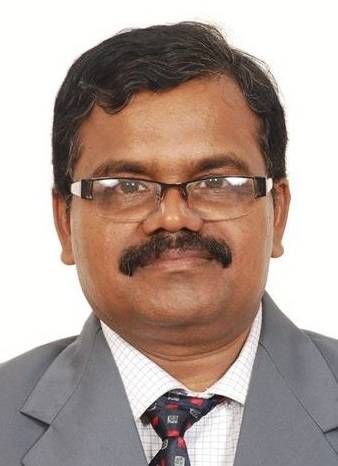
Dr. Sibaram Khara, Vice Chancellor, Sharda University
We anticipate great things from the incoming budget, as we are among the best private colleges in the world. We hope to see a 10% increase in funding for higher education, especially for private universities. We are looking for funding for research and innovation, financial support from the government for projects, and help with technology partnership with industry and top research centres. Furthermore, we expect a twenty percent rise in the funding provided to universities to assist with startup incubators, career training, and entrepreneurship. Furthermore, we are requesting permission and support to open campuses of Indian higher education institutions abroad. Support is one of the most important things we need in order to establish India as a hub for internationalization.
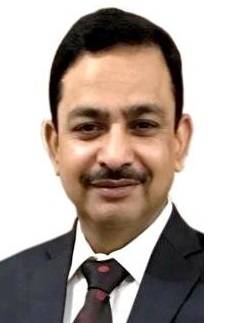
Rajeev Gupta, Admission Director, Sharda University
Since the salaried class is the largest income tax payer and does not receive any benefits in their daily lives, budgets before to 2024–2025 neglected them. They anticipate higher income tax rates as well as additional benefits in their daily lives, such as free health insurance, free tolls on toll plazas, and reduced GST for taxpayers in higher tax brackets. As a result, he or she takes pride in paying more income tax.
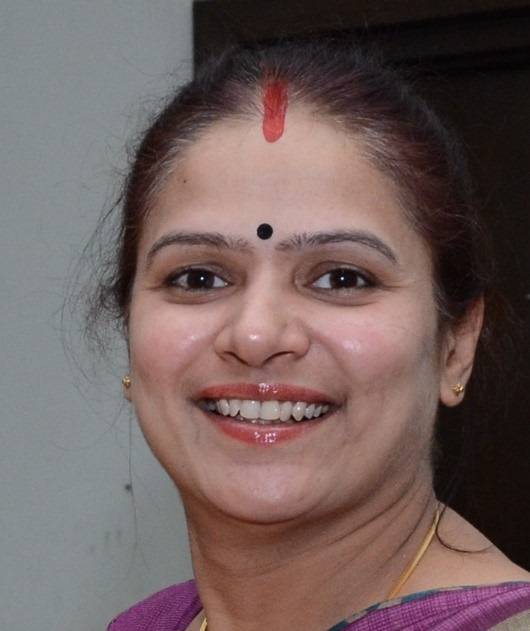
Prof. (Dr.) Jayanthi Ranjan, Dean Academic Affairs, Sharda University
Key elements for the higher education sector are what I anticipate to see in the Union Budget. I hope that more money will be given to the education sector, which will enable upgrades to research facilities, infrastructure, and academic advancement in general. Funding for research and innovation is essential, and incentives for cooperative initiatives that meet industrial demands should be included. Initiatives for skill development in collaboration with the government would improve graduates' employability. In order to improve our university's reputation internationally, I aim for policies that encourage the use of technology in the classroom and programs that foster cross-national partnerships. Higher education would become more accessible if there was financial support for students in the form of scholarships and inexpensive education regulations. Moreover, tax breaks for universities and financing for systems of quality control would support the upkeep of high academic standards.
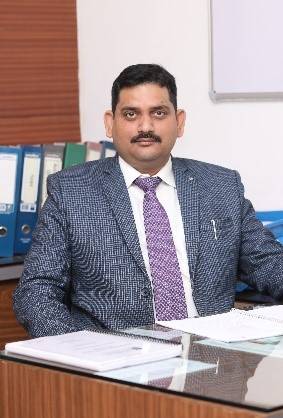
Dr. Nihar Ranjan Roy, Associate Professor, Center for Cyber Security and Cryptology, Sharda University
There is no debate today that IT is the new highway for development. The upcoming budget must focus on this, especially sub areas like: building digital Infrastructure, skill development, Research and development (Quantum Computing, Cyber Security, and Generative AI) , Cyber security (Awareness and defense) and promoting startups. It must also focus on simplifying processes. Govt. must focus on technologies of the future like quantum computing and building quantum computers, securing Bharat’s digital space, having our own data centers and using the data for AI and decision making for new policies. More and more IT based skilling and promoting startups is required. The threats coming from the latest cyberspace should be addressed and awareness must be created among citizens. Strict rules related to privacy, spamming and phishing should be made and strictly implemented. Number of Cyber police and centers should be increased.
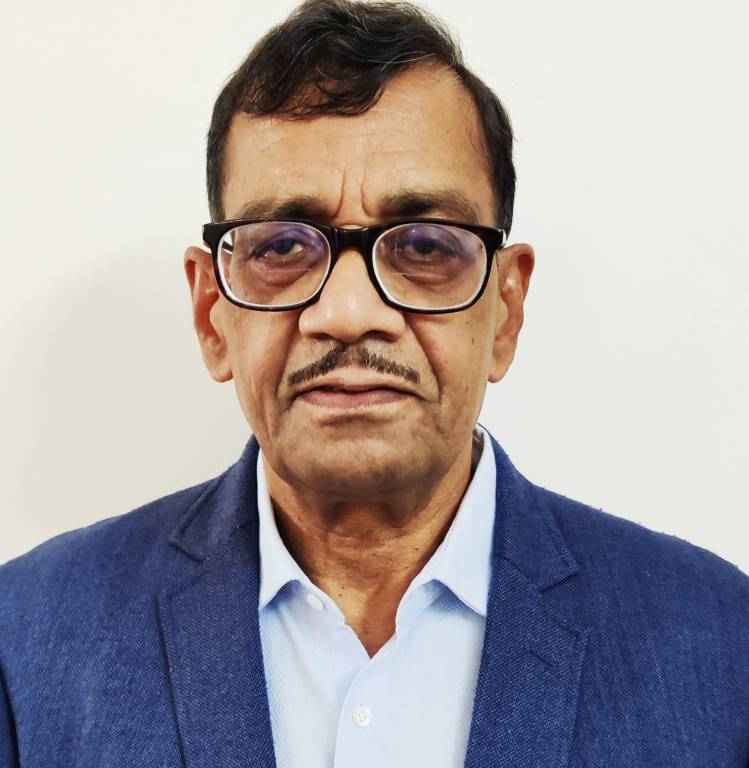
R.D. Sahay, Advisor Policy, Sharda University
Our primary expectation from the upcoming budget is an increased allocation of funds in real terms to the higher education sector. Since at present R&D expenditure, as a proportion to GDP, is only 0.7%, there has to be a substantial increase in grants for research and innovation; such increase is imperative for creation of new knowledge and crucial for propelling the sector forward to keep pace with the global standards. Creation of new knowledge is likely to result in development of new technologies, possibility of new businesses, innovation, entrepreneurship and start-ups. Further, the budget should stimulate certain structural reforms in the economy by providing fiscal incentive and facilitating greater collaboration between the industry and academia, thereby ensuring that the curriculum remains relevant and student’s industry-ready upon graduation.
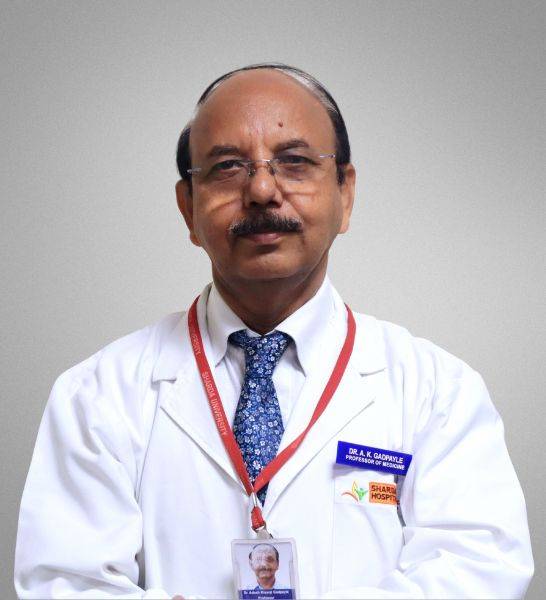
Dr AK Gadpayle, Head Deptt of Medicine, Sharda Hospital
We feel that stability in corporate tax rate, strengthening of manufacturing units,investor grab opportunity, attract private funding, increase health sector GDP, special program for mental health and Geriatic,more funding for power,emphasis on green hydrogen, care for global warming,sanitation and pollution, care for capital expenditure, building communication, like road,sea,air ,providing safe drinking water, income tax on home appliances,grocery to be reduced. Education sector to be boosted up.

Dr . Shrey Srivastav, General Physician, Sharda Hospital
1) Expansion of Ayushman Bharat or similar scheme to middle class family:
“Health Insurance of India’s Missing Middle”.
As per the report, the missing middle account for nearly 40 crore Indian citizens who still lack any health insurance protection.
2) Increase in tax deductions on preventive healthcare checkups:
The tax deduction limit should be raised from Rs 5,000 to Rs 15,000 per family. The tax benefit will promote more citizens to opt for preventive health checkups, this could help in early diagnosis.
3) PLI Scheme for Healthcare Services:
Production-Linked Incentive (PLI) scheme for medical devices. Should also consider introducing a service-linked scheme for the healthcare sector.
4) Higher tax benefits for healthcare skilling and development sector:
Currently, according to Section 35CCD, of the Income Tax Act, a manufacturing company should have a weighted deduction of 150% of the expenses incurred on the skill development of its employee.
5) Government should establish the separate healthcare infrastructure fund:
The government should give more focus on the Micro, Small, and Medium enterprises (MSME) sector, startups, medical device parks and other sectors in many ways.
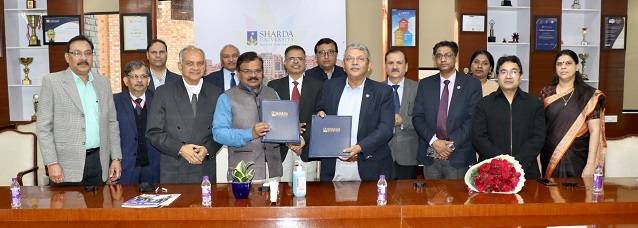
December 9, 2021: By signing a Memorandum of Understanding with PHD Chamber of Commerce & Industry, one of India's largest and oldest top business organisations, Sharda University has made a significant step forward in the path of academia-industry collaboration. Dr Sibaram Khara, Vice-Chancellor of Sharda University, and Saurabh Sanyal, Secretary-General of PhD Chamber of Commerce & Industry signed the MoU on the Sharda University Campus. The event was attended by DP Goel, Co-Chair, PHDCCI MSME Committee, Dr H P Kumar, Advisor, PHDCCU MSME, Naveen Seth, Asst Secretary-General, and Mithilesh Kumar, Secretary, PHDCCI. Senior faculty members, as well as senior functionaries from both sides, attended the signing event.
PHD Chamber of Commerce and Industry is involved in nearly 67 areas of the economy and plays a key role in policy debates at the forefront of social, economic, and political change. Think tanks, governments, and academia seek out PhD Chamber's views on policy concerns, and its papers are widely read for their in-depth research and policy suggestions. The MoU will give Sharda University more formal and organised access to enterprises under the aegis of the PHD Chamber of Commerce. Faculty and students will gain practical experience as a result of the MoU through participating in industry-led sessions, webinars, seminars, workshops, internships, and placements.
Sharda University and PHD Chamber of Commerce & Industry have mutually agreed to host an academia-industry meet on World IP Day, April 26, 2022, to showcase the technologies developed by Sharda University's innovative faculty and students to industries in order to not only identify opportunities for technology transfer, but also to strengthen the links in a continuous and self-sustaining manner. During the signing event, Dr Sibaram Khara, Vice-Chancellor of Sharda University, underlined the need for continued efforts from both sides in identifying areas of cooperation for the greater good of the society. The meeting was organised by Dr Bhuvnesh Kumar, Dean of Research, and Prof. Avinash Kumar, Head of the IPR Cell.
Dr Saurabh Kumar Jha Receives Best Stem Cell Researcher Award
Dr Michele Zocchi of the University of Turin, Italy, awarded Dr Jha with the' Best Stem Cell Research Award 2019.' In the field of adipose tissue physio-pathology and engineering, Prof. Zocchi is internationally regarded as one of the pioneer and most influential scientific leaders in body-contouring surgery and regenerative therapy worldwide.
Students Participate in Advantage Healthcare India 2019
November 14, 2019: Students of Sharda University participated in fifth International Summit on Medical Value Travel-Advantage Healthcare India 2019. The event was organised by FICCI in association with Ministry of Commerce and Industry. The seminar was aimed to promote India as the world leader of healthcare and to encourage seamless exports of medical services from India. Stakeholders from medical industry actively participated in the conference as the focus was on hospitals, healthcare centers, educational institutes, medical tourism facilitators, hotels, airlines and other related industries. This will bring Indian healthcare providers and global healthcare stakeholders on one platform.
Inauguration Ceremony of University Campus in Uzbekistan
October 19, 2019: Sharda University celebrates the inauguration of its new campus in Andijan City, Uzbekistan. The University has strongly believed that a distinctive dedication to practical goals is key ingredients in its concentrated vigilance, strength, and perseverance. Prominent personalities of Uzbekistan such as Chief Governor of Andijan Region, H.E. Shukhrat Abdurakhmanov and Chief Minister of Gujarat, H.E.Vijay Rupani were invited as Chief guest of the event. A new route to global higher education can be found in the academically serene and residential campu spread over nine acres of land with modern facilities and state-of-the-art infrastructure.
- Chat with our counsellor
- Get your personalised list of colleges & exams matching your preferences
Know more about this University
- Sharda University News & Events
- Sharda University Scholarship Details
- Sharda University UG, PG Courses 2025
- Sharda University Placements 2024: Highest Package, Average Package, Top Companies
- Sharda University Cut Off 2024: Check NEET, CAT Previous Years Cutoff Trends
- Sharda University Answered Questions
- Sharda University Faculty Details & Reviews
- Sharda University Infrastructure Details & Reviews
Student Forum
Answered Yesterday
hi
Lovely Professional University (LPU) is a superb option for undertaking an Integrated MBA (BBA+MBA) thanks to its well-organized curriculum, robust industry ties, and emphasis on comprehensive development. This 5-year programme merges the basic elements of business administration (BBA) with higher
J
Contributor-Level 9
Answered Yesterday
Hello!
The tuition fee for the MBA programme at LPU is Rs 2 Lacs per semester. However, students can avail themselves of scholarships based on various criteria to make education more accessible.
Mittal School of Business (MSB) – A Leading Institution for Business Education
The Mittal School of Business
P
Contributor-Level 7
Answered 2 weeks ago
Hey, placement hunters! Let me spill the tea about NIU Business School placements!
NIU Business School Placement Highlights:
81% placement rate
Average package: 5-7 LPA
the highest package: 25-32 LPA
Top recruiters:
Capgemini
Big Basket
Urban Company
Infosys
Jio
Paytm
Cool Placement Features:
100% placement supp
S
Contributor-Level 6
Answered 3 weeks ago
Lovely Professional University (LPU) offers a Bachelor of Business Administration (BBA) programme designed to develop business and management skills. Here's an overview of the program:
Key Details of BBA at LPU:
- Duration: 3 years (6 semesters)
- Eligibility:
- Pass with 50% aggregate marks in 10+2 (any stre
V
Contributor-Level 7
Answered 2 weeks ago
The Mittal School of Business (MSB) at Lovely Professional University (LPU) has quickly gained prominence as a top choice for business education. The school is recognised for its inclusive environment, bringing together a wide range of students and faculty from different parts of the world. This div
p
Contributor-Level 8

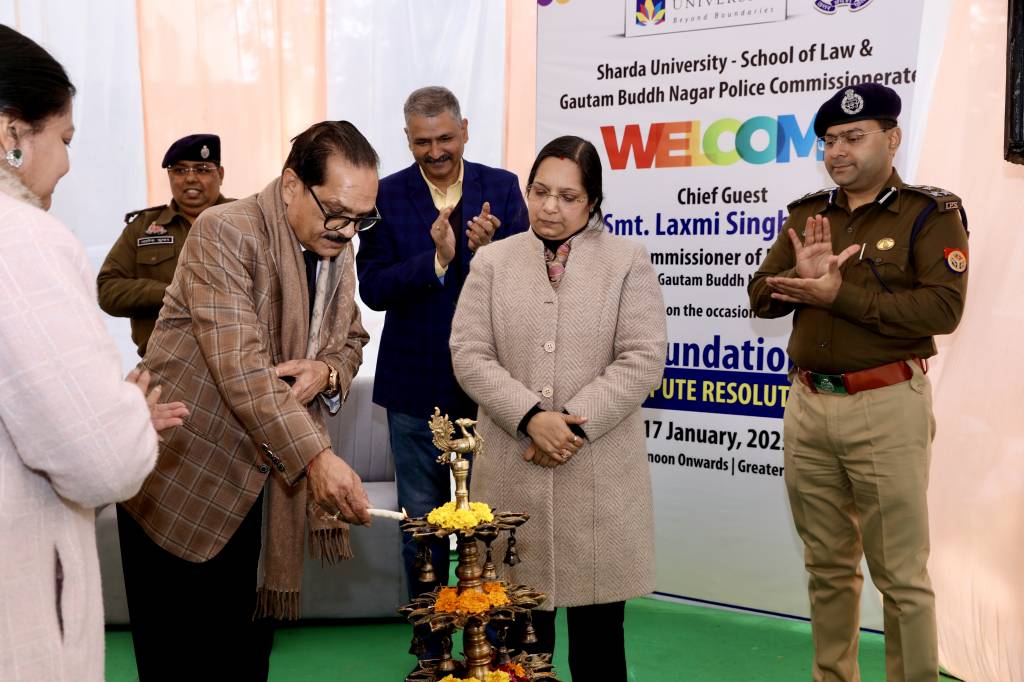
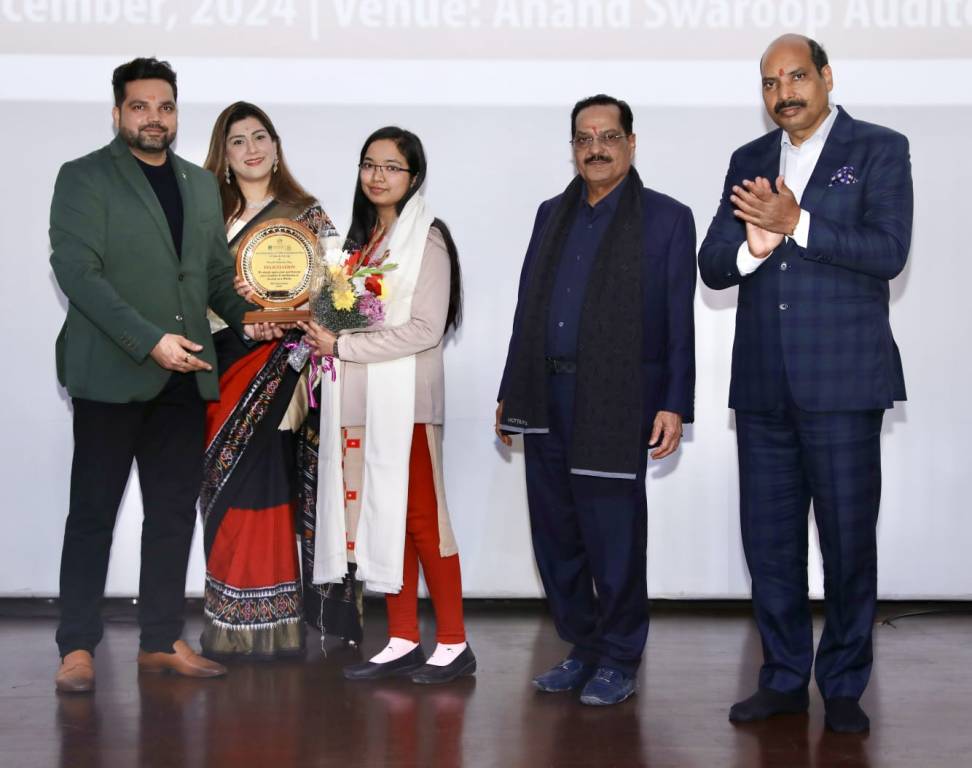
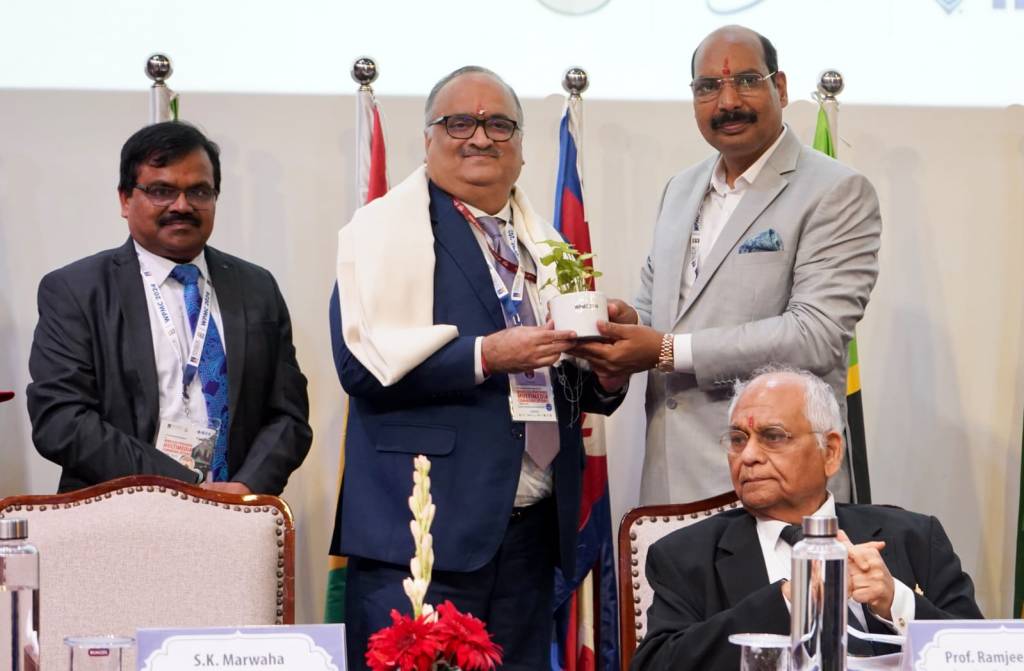
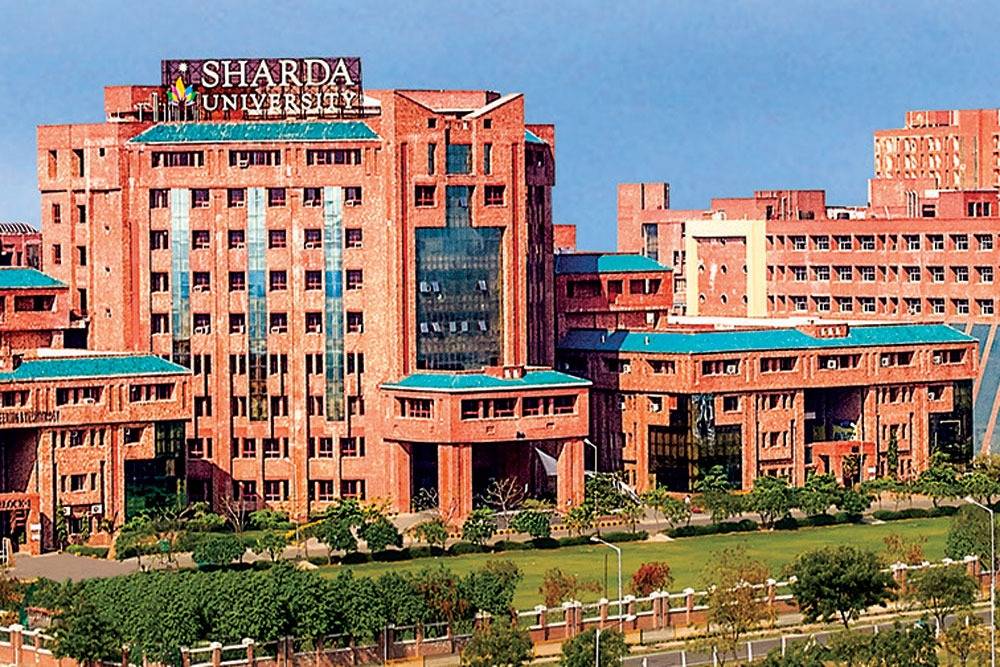
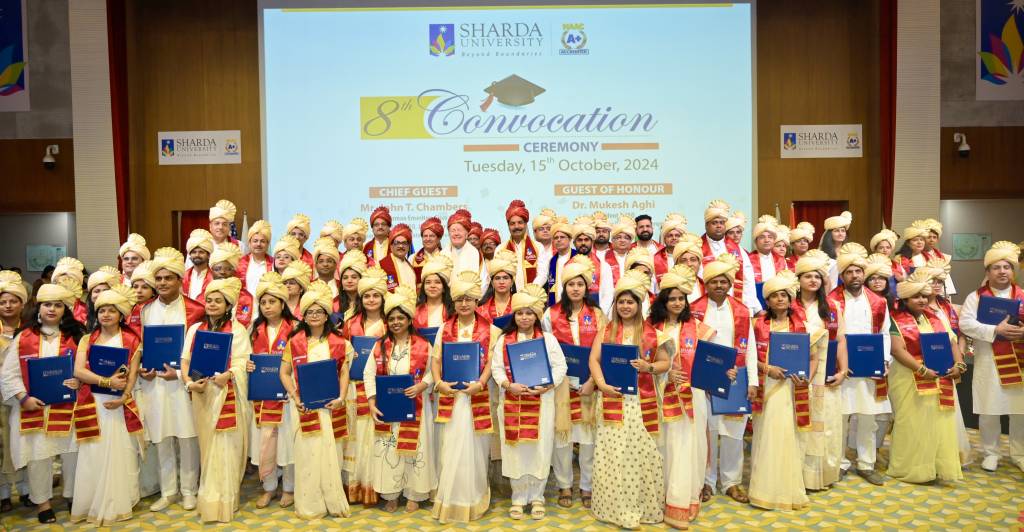
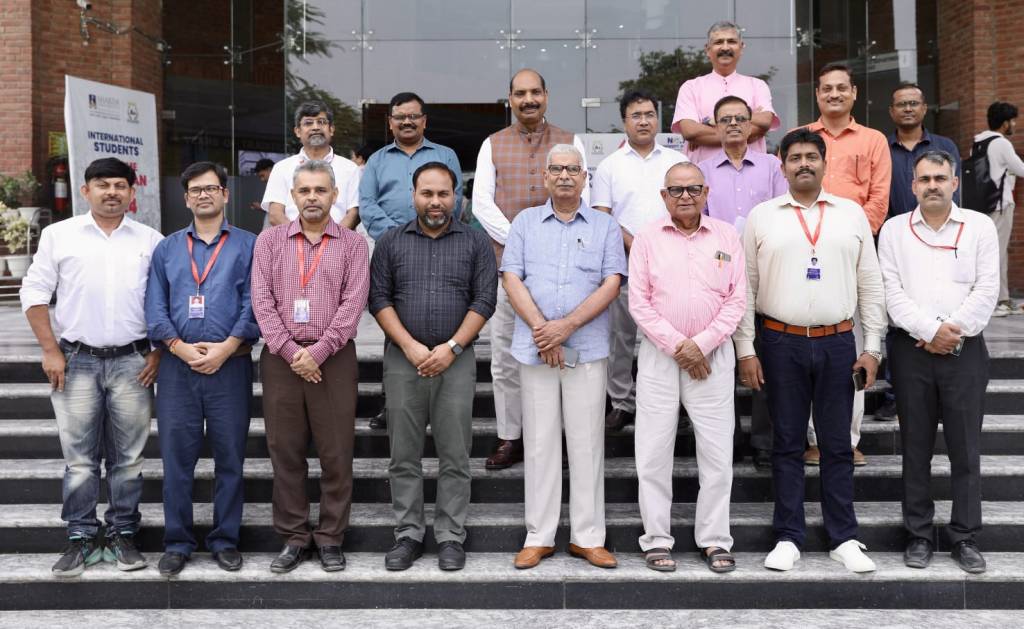
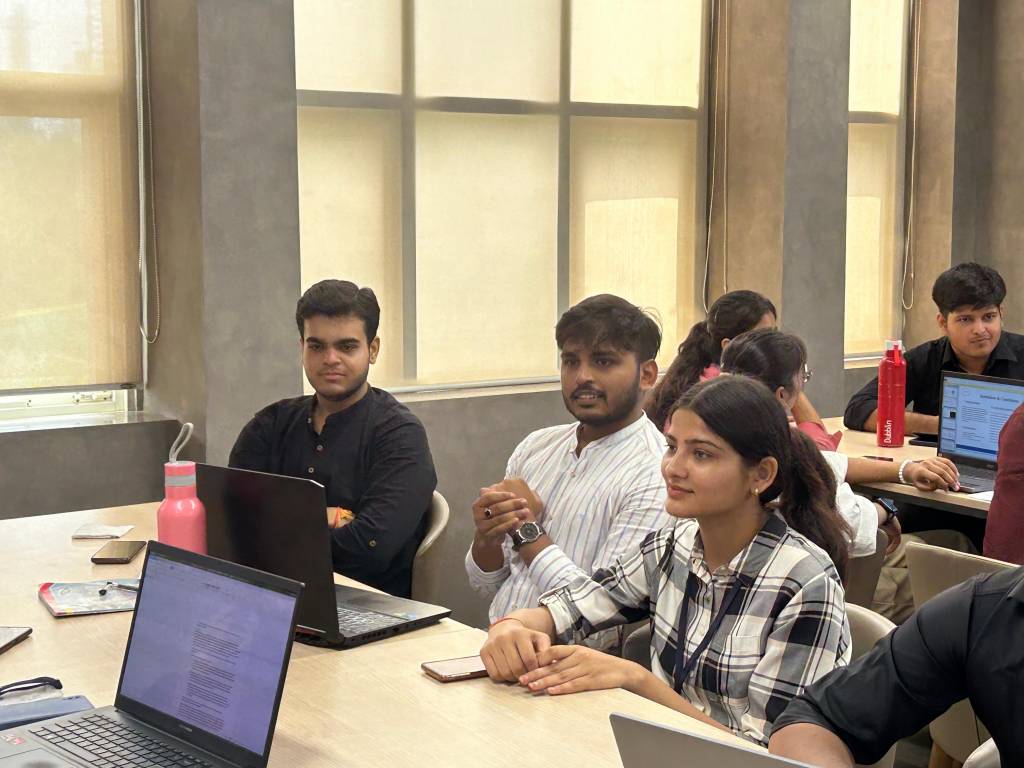
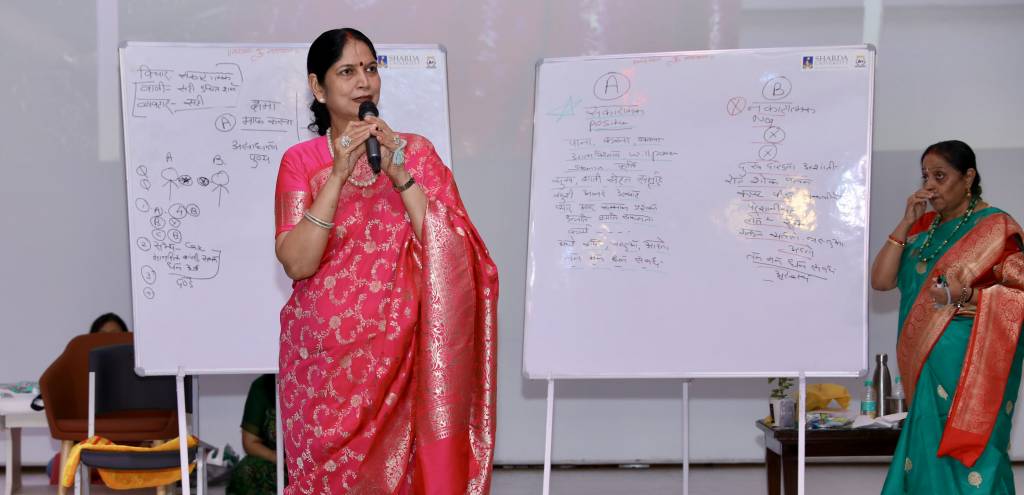
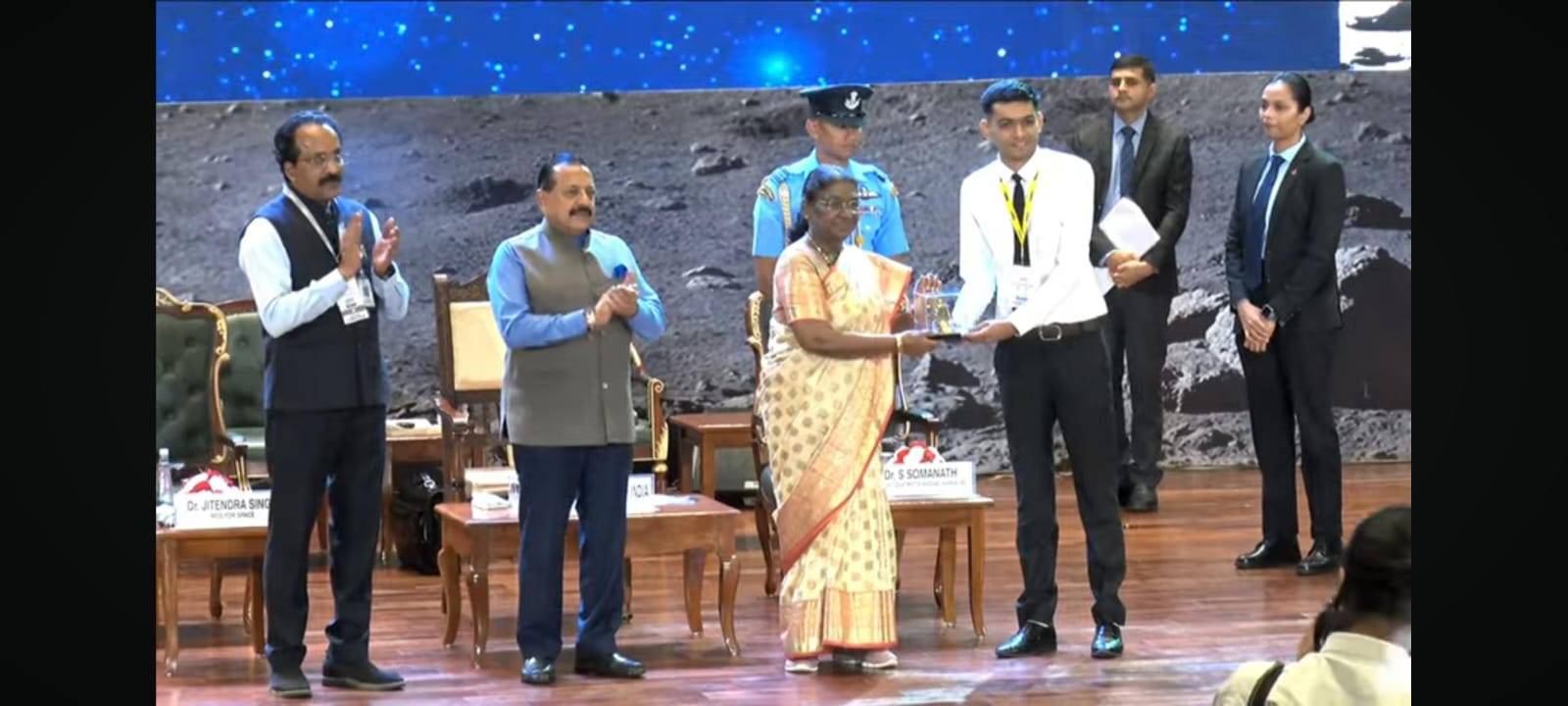
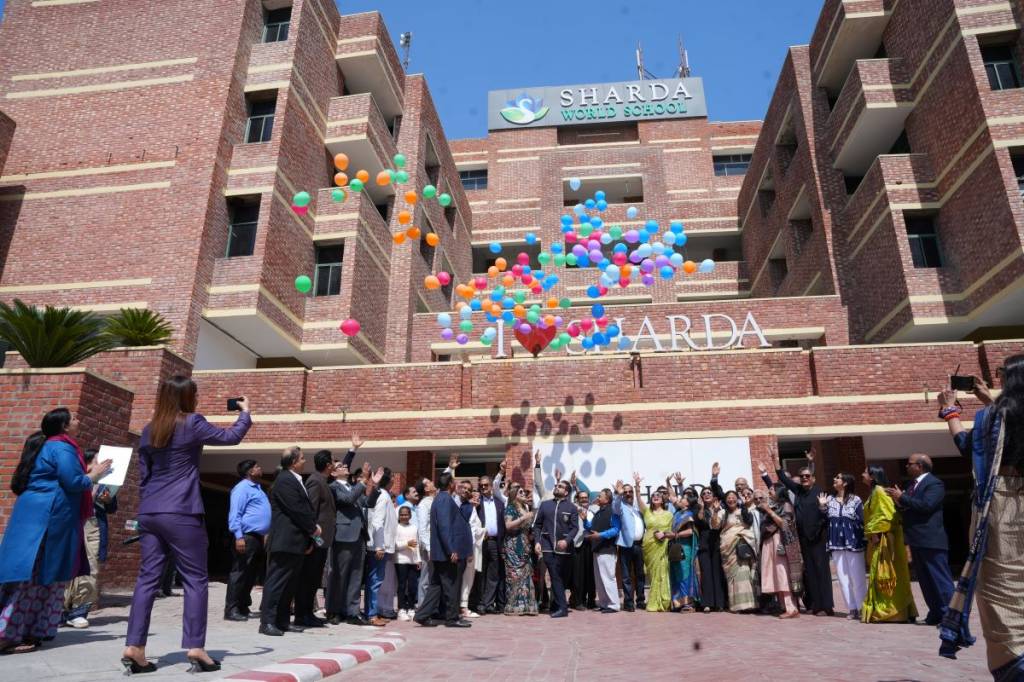
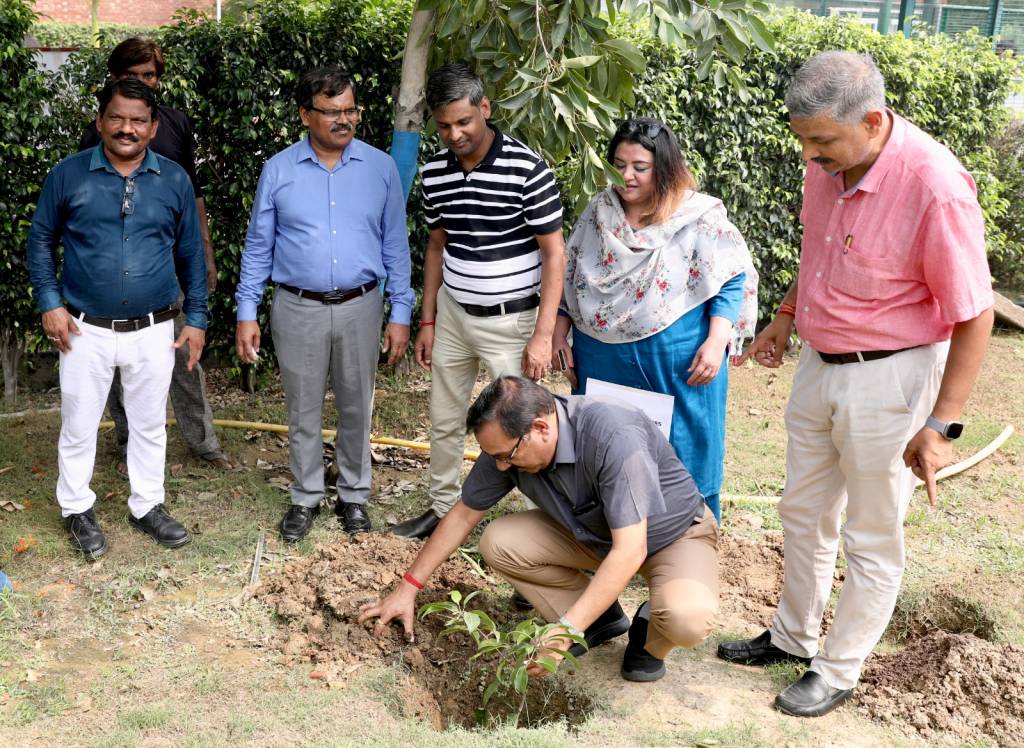
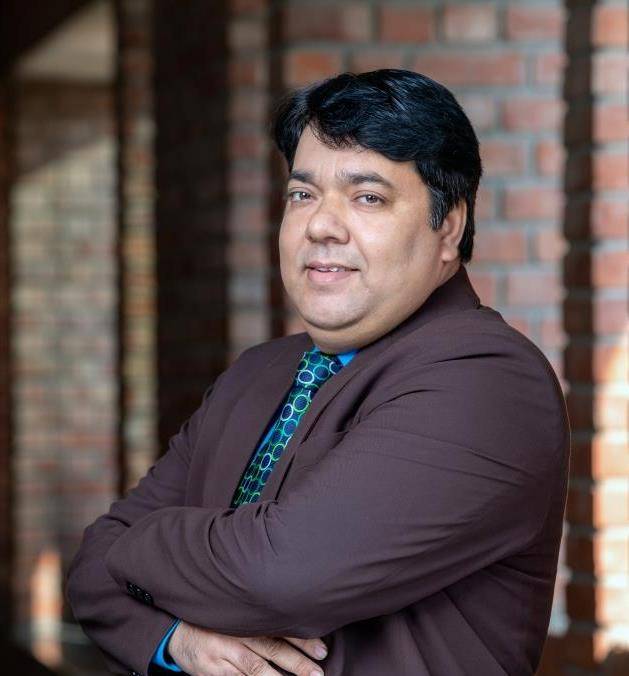
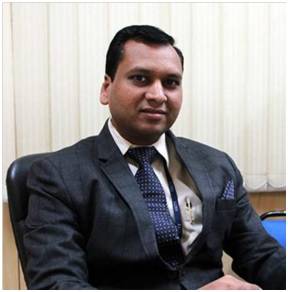
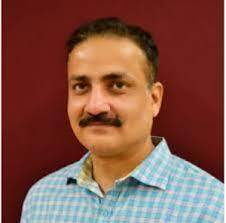
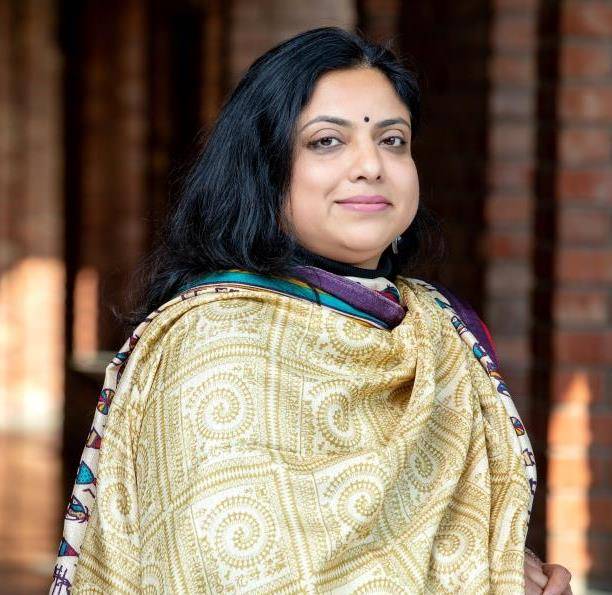
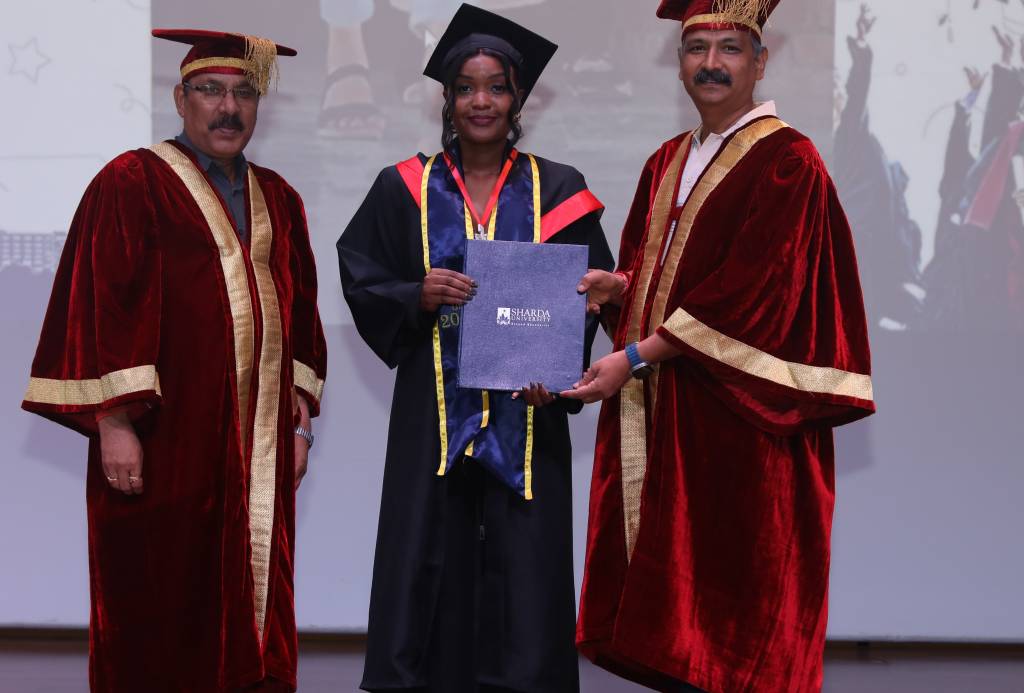
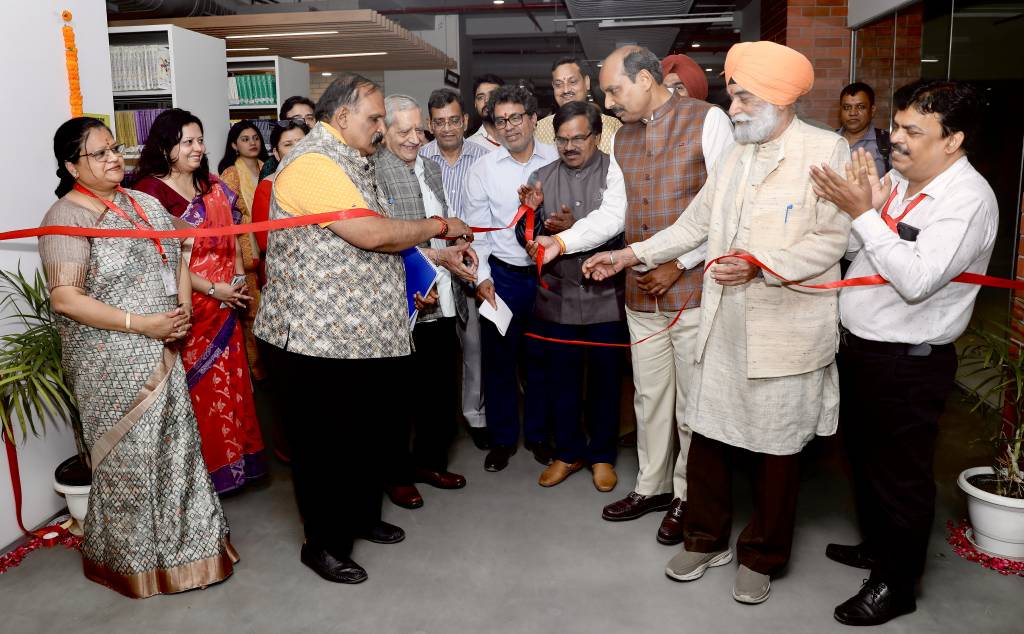

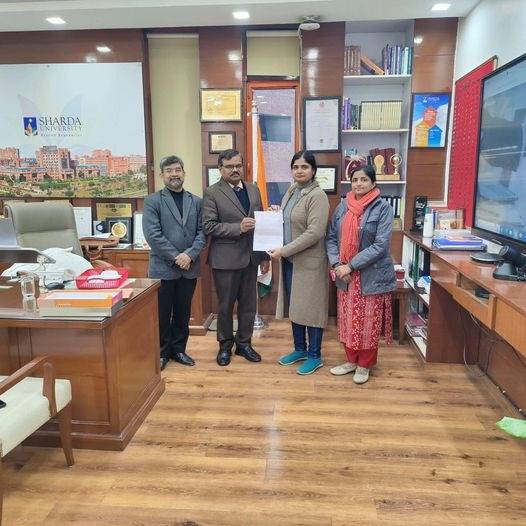
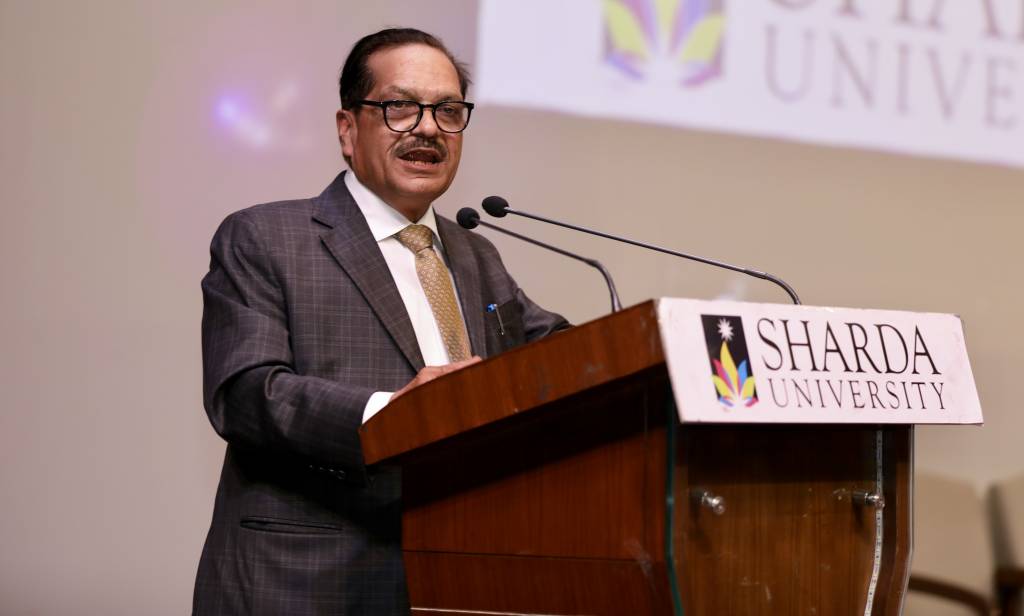
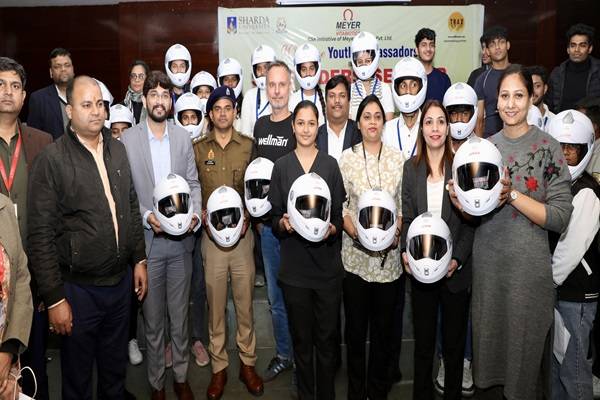
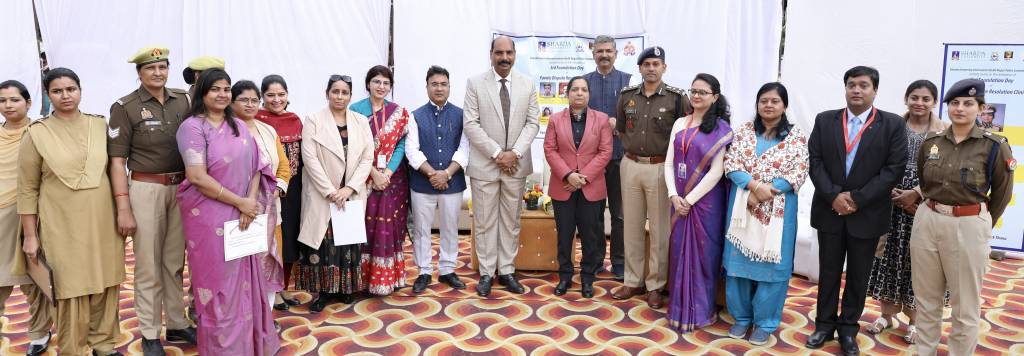
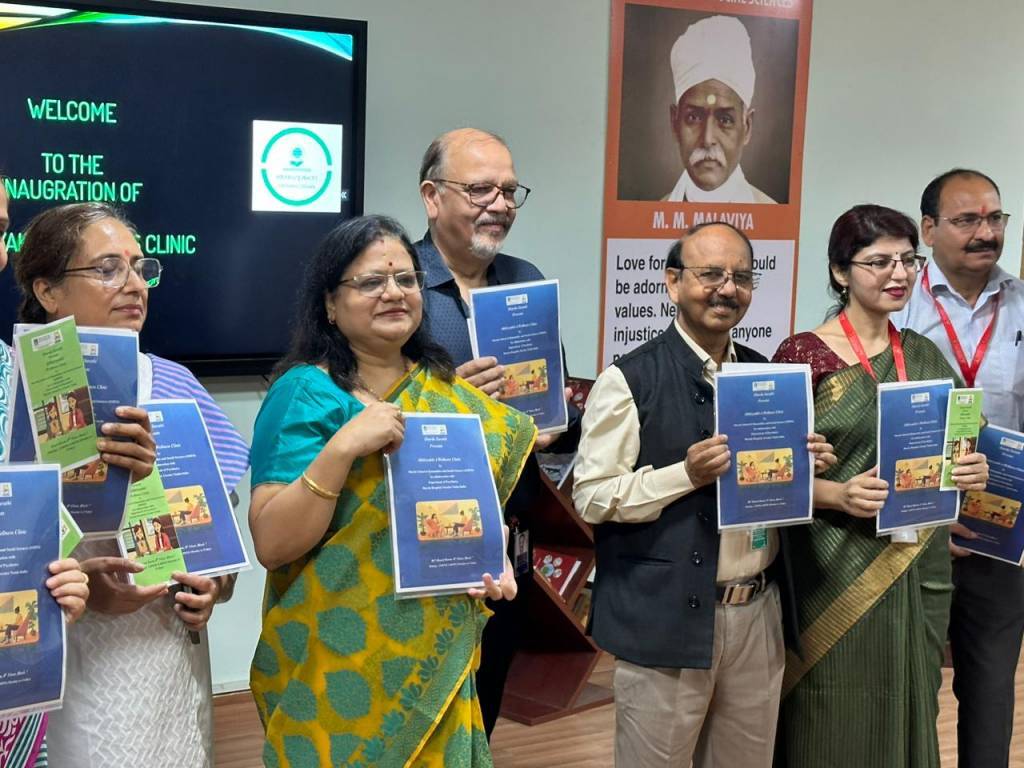
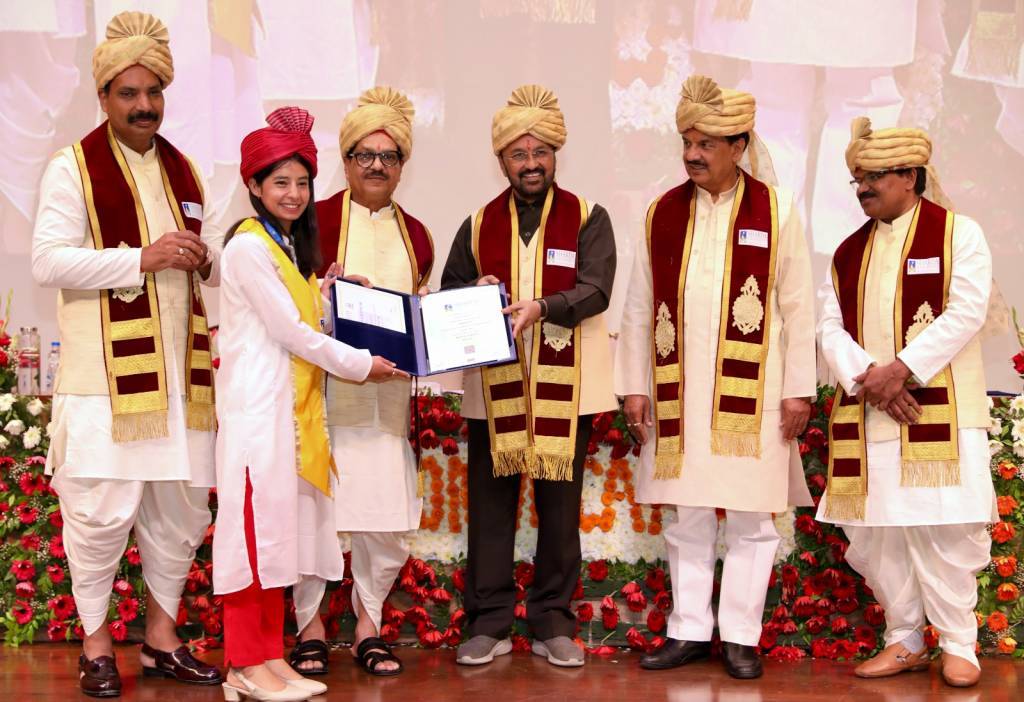

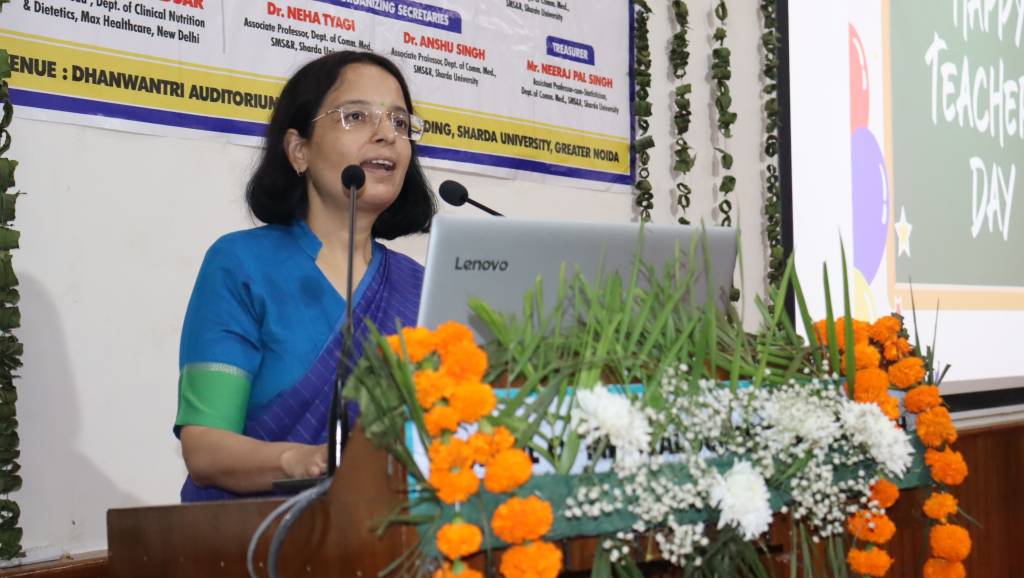
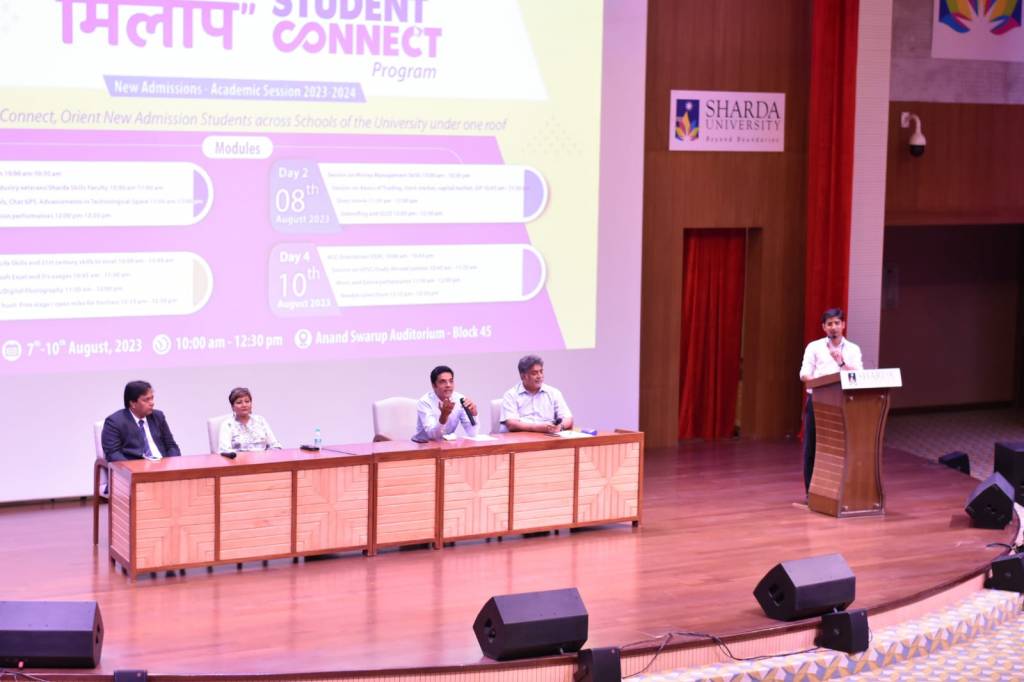


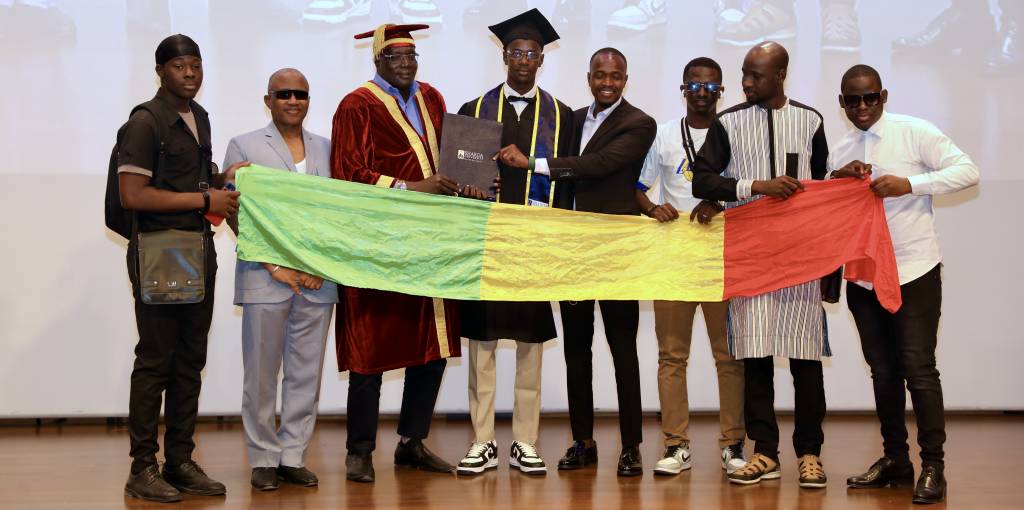
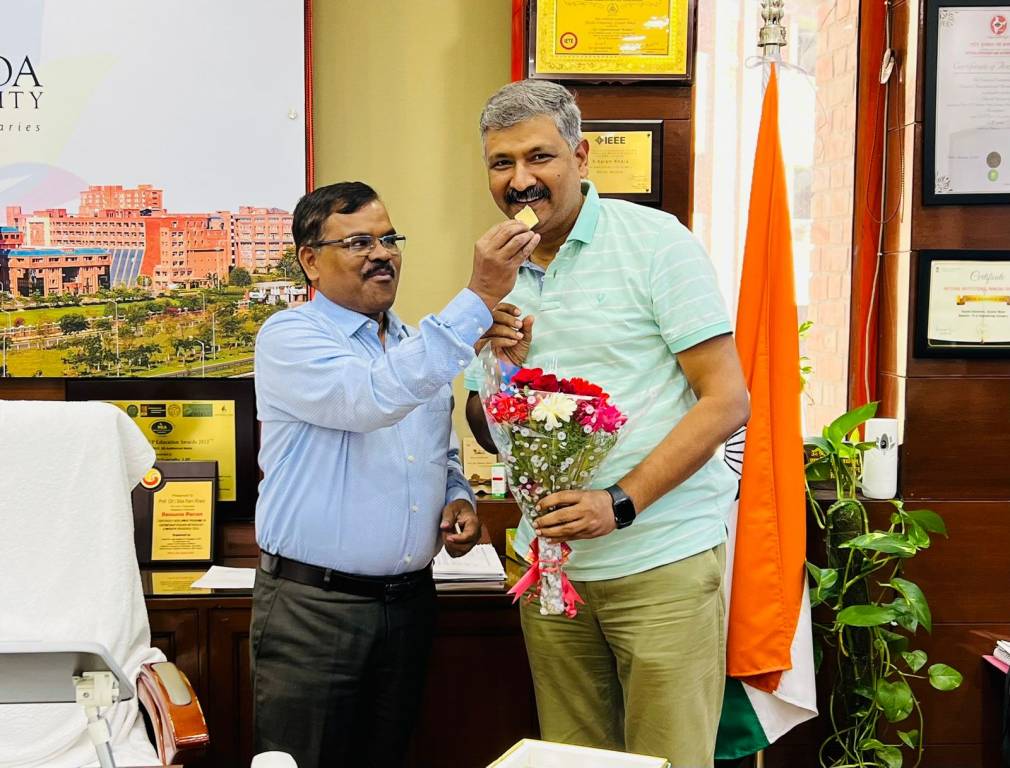
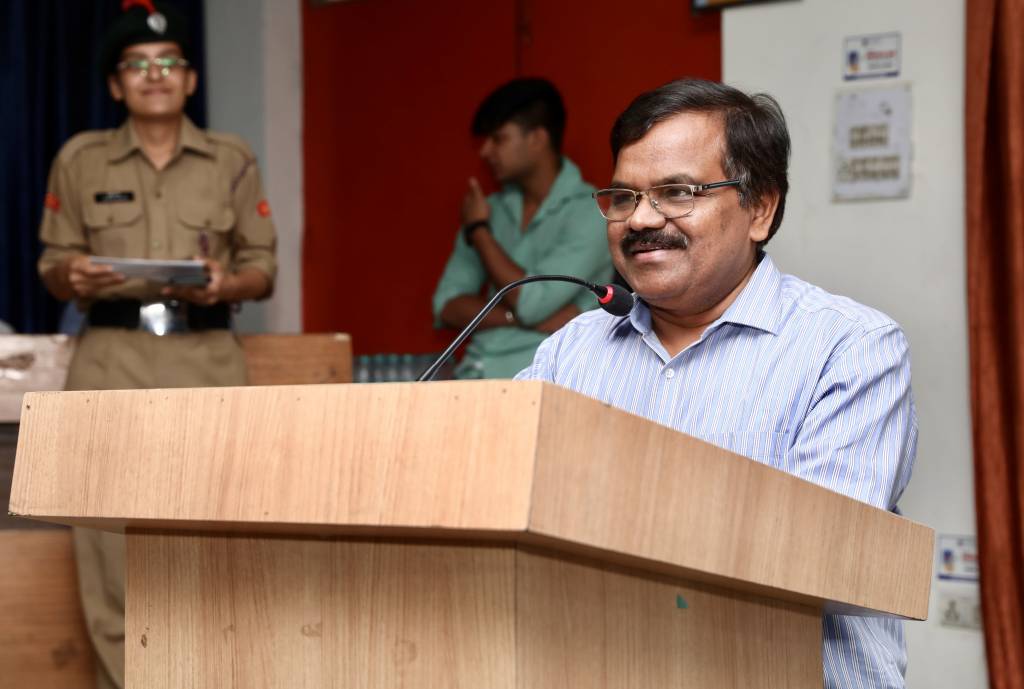
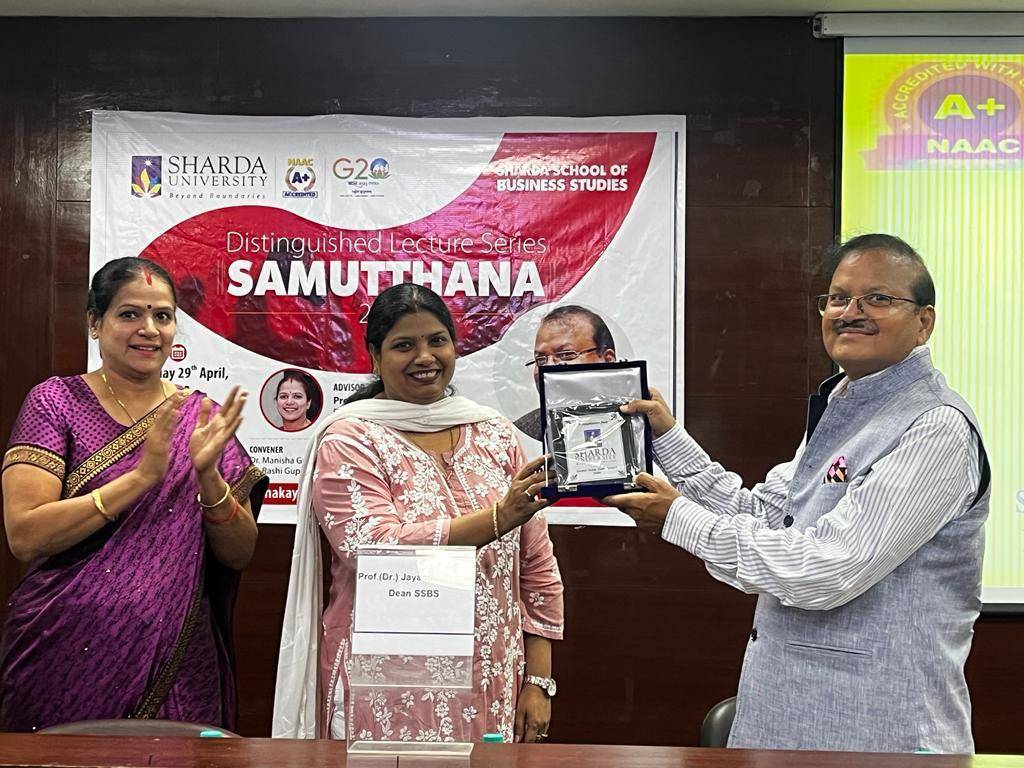
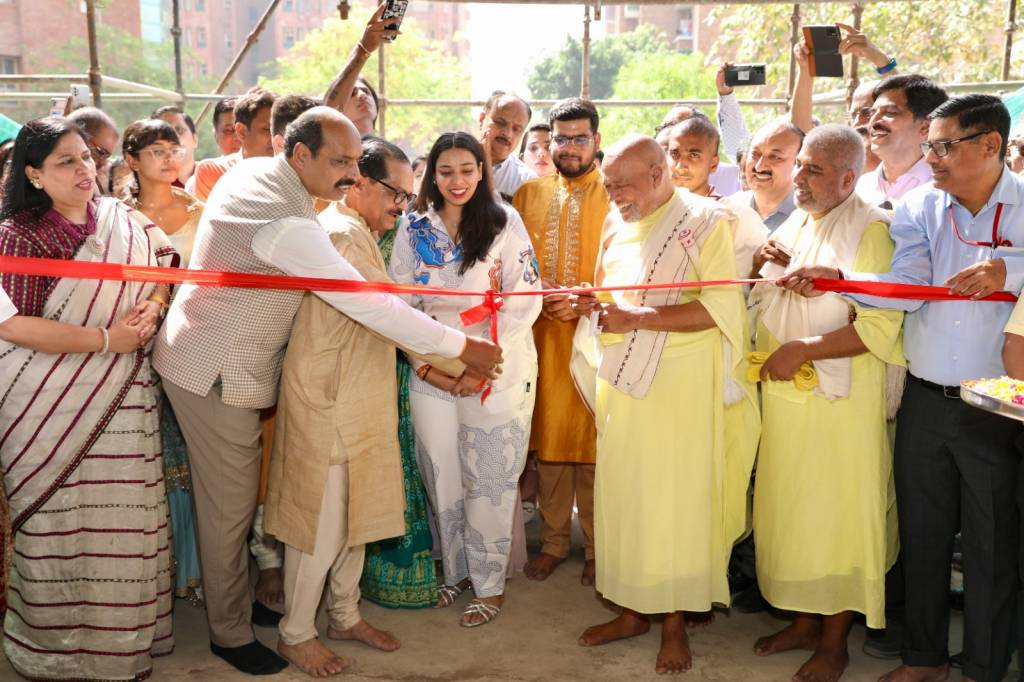

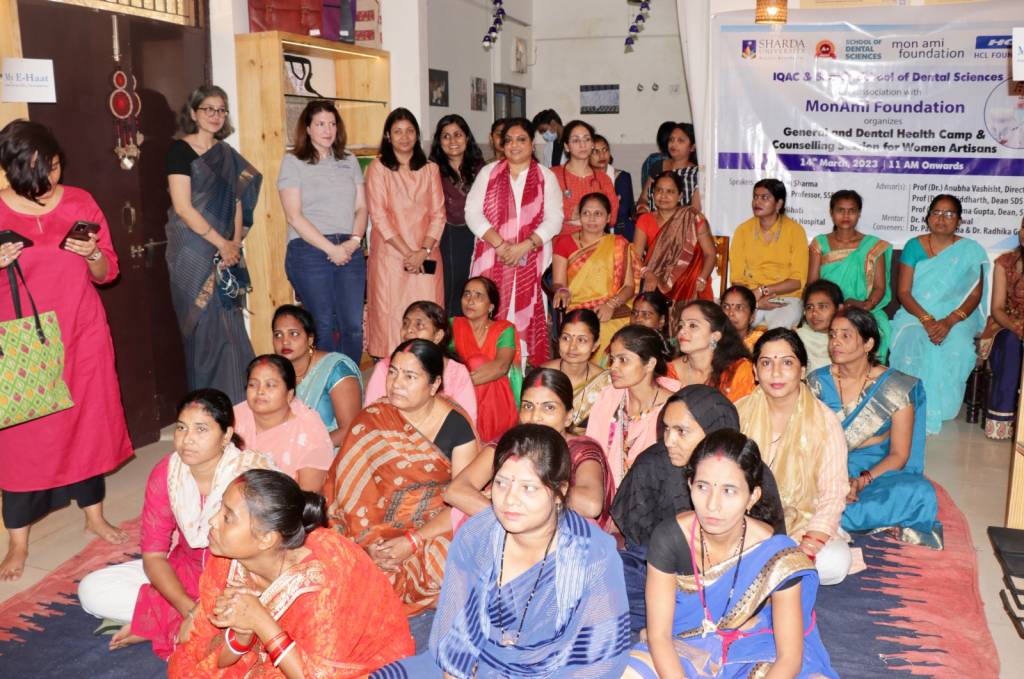
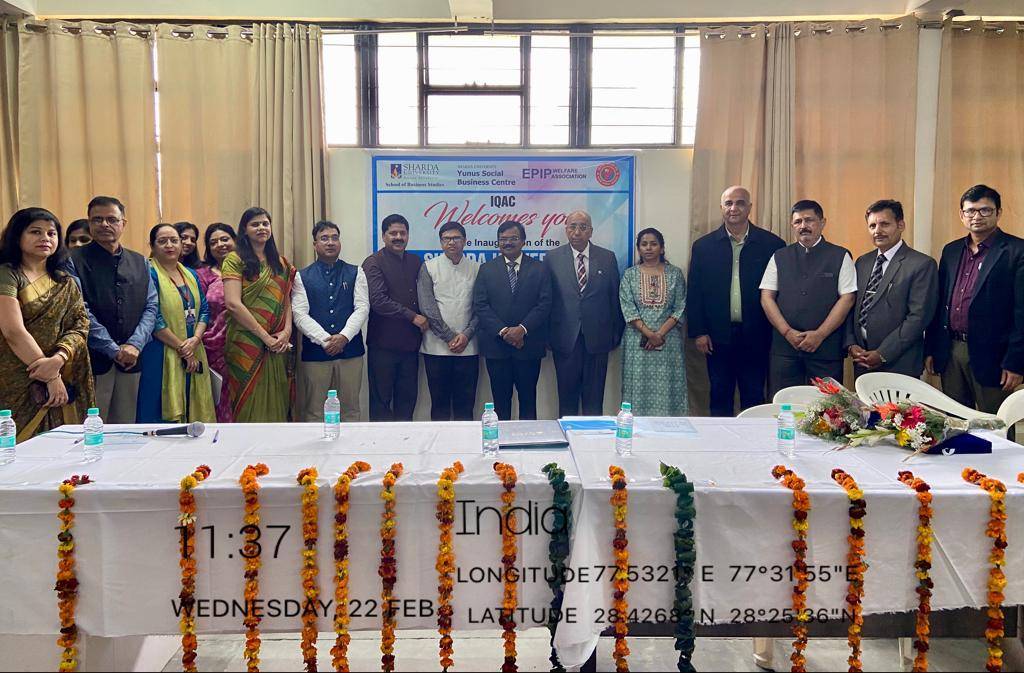
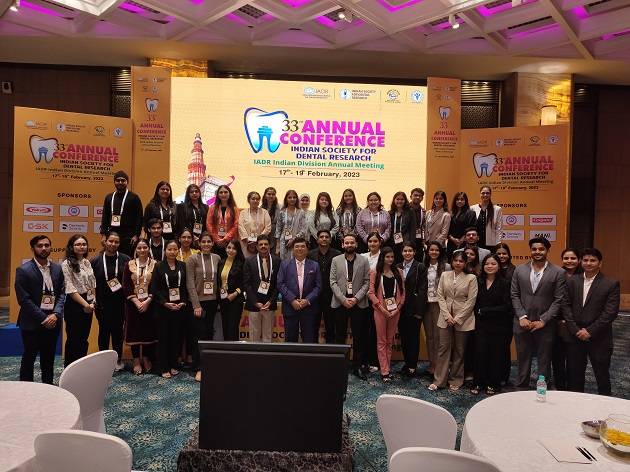
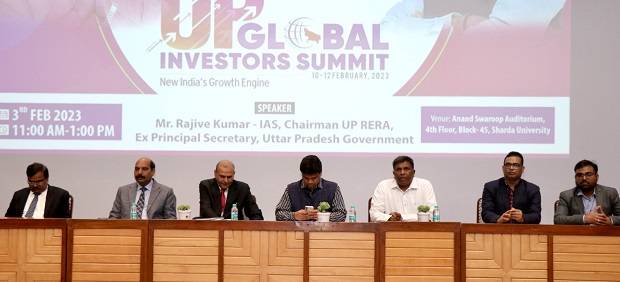
 D
D


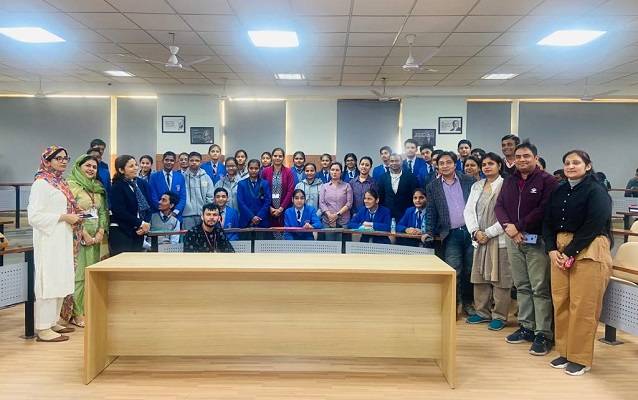
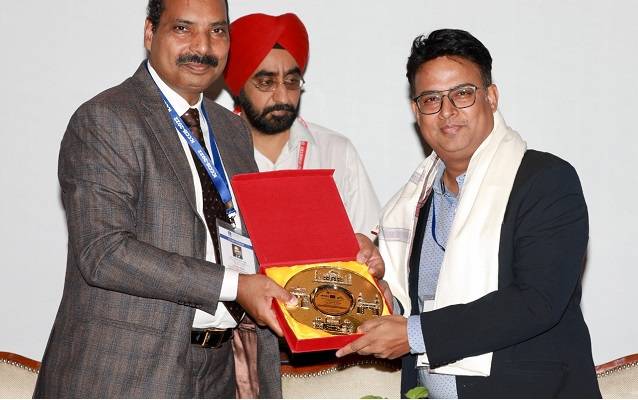
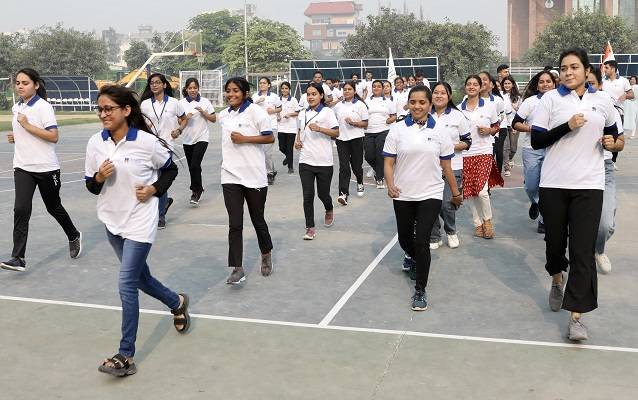
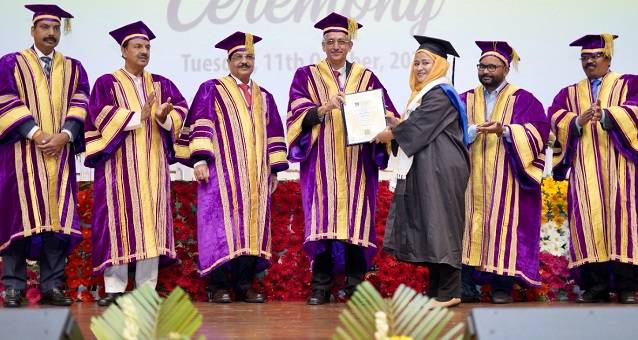
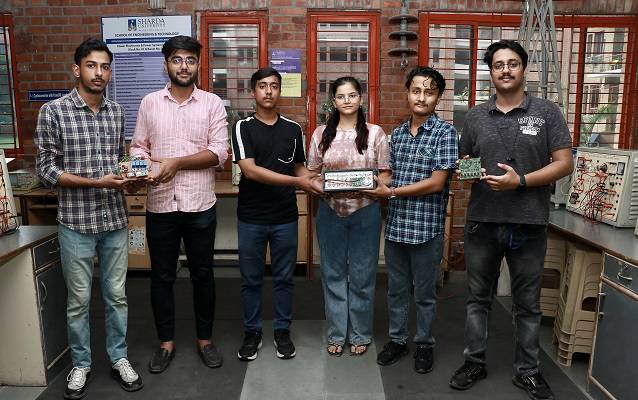
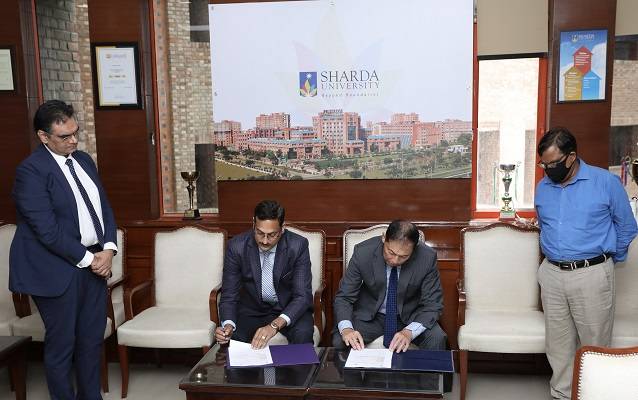
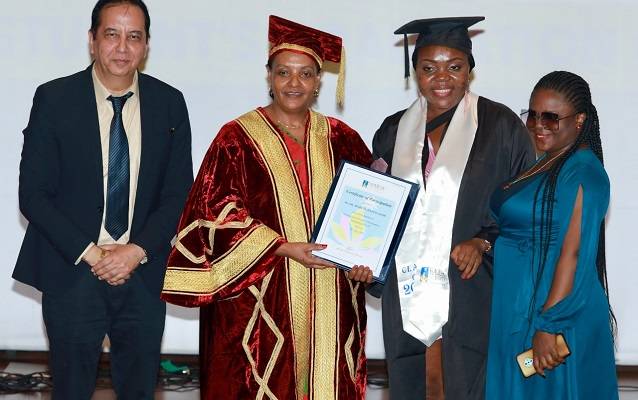

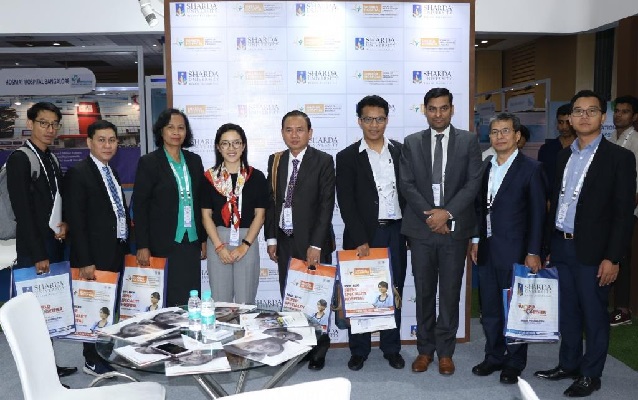







Which is best between Shardha University and Lovely Professional University for BBA in entrepreneurship management?